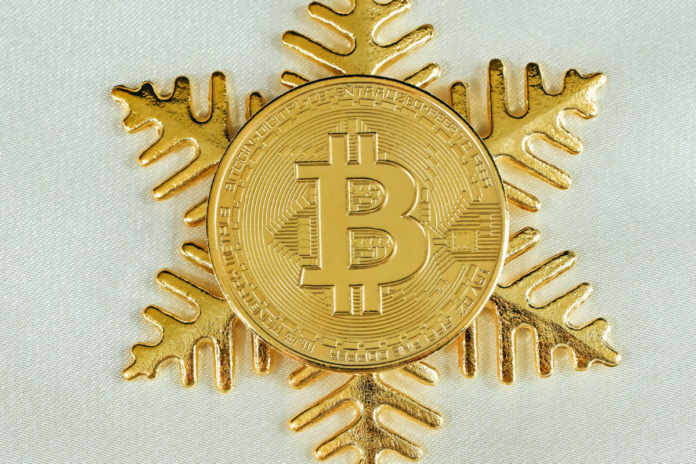As real estate owners look for new methods to increase their wealth while minimizing taxes, the 1031 exchange has always been a useful tool. This tax method allows investors to delay capital gains taxes by reinvesting profits from one property into another of a similar type.
However, recent political proposals suggest a groundbreaking shift: incorporating Bitcoin into the 1031 exchange framework. This potential change could redefine real estate investing and open new avenues for profit. Here’s a closer look at how the future of 1031 exchanges might include Bitcoin as a key asset.
An Overview of the 1031 Exchange
According to 1031 Crowdfunding, a 1031 exchange enables real estate investors to postpone capital gains taxes. This approach, called after Section 1031, allows investors to reinvest the profits of a property sale into a similar property. By doing so, they can avoid immediate taxes and leverage their gains for future investments.
Investopedia notes that to reduce your tax burden, plan the transfer of ownership for a year when your tax rate is lower. By controlling when the title and possession change, you can potentially minimize the capital gain reported. IRS states that the net capital gains might be taxed at 0% if your taxable income falls below specific thresholds.
The filing threshold for single filers or married couples filing separately is $41,675. The cost for married couples filing jointly or qualified surviving spouses is $83,350.
The importance of understanding the 1031 exchange terminology cannot be overstated. Investors must identify a replacement property within 45 days and complete the purchase within 180 days of selling the original property. This process is crucial for maximizing the benefits of the 1031 exchange and has long been a key tool for building wealth.
The Role of Bitcoin in Future 1031 Exchanges
The idea of adding Bitcoin to 1031 exchanges is gaining momentum, especially with recent political proposals. Presidential candidates suggest allowing Bitcoin in these exchanges, letting investors convert real estate gains into digital assets without immediate tax liabilities.
This change could modernize the 1031 exchange process and reflect the growing role of cryptocurrencies in finance. By treating Bitcoin as a like-kind asset, investors could diversify their portfolios and tap into new growth opportunities in the cryptocurrency market.
CNBC reports that President Biden’s proposal to limit 1031 exchanges could restrict the property values investors can utilize and negatively affect the economy. If approved, many savvy investors might choose to hold onto their properties, anticipating future changes in the tax code. This move could lead to decreased property transactions and market uncertainty.
Potential Benefits for Real Estate Investors
Incorporating Bitcoin into 1031 exchanges could offer several benefits for real estate investors. Firstly, it offers a new way to diversify investments, enabling investors to balance market fluctuations with a mix of real estate and digital assets.
Forbes states that 2024 started strong for cryptocurrencies, with Bitcoin and Ethereum gaining significant traction and excitement among enthusiasts. The price of Bitcoin (BTC) as of August 5, 2024, was $51,502. Its market capitalization has reached $1.04 trillion, reflecting continued investor confidence.
Bitcoin’s increasing value and liquidity could enhance investment strategies by offering higher growth potential compared to traditional real estate investments alone. This change could also streamline investment processes by merging traditional and digital asset transactions, potentially reducing the complexities associated with real estate exchanges.
Challenges and Considerations
While the prospect of integrating Bitcoin into 1031 exchanges is intriguing, it also presents several challenges. Regulatory hurdles and the need for clear guidelines on how Bitcoin would be valued and managed within the exchange framework are significant concerns.
Yahoo! Finance notes that Trump has proposed creating a national Bitcoin stockpile. He has expressed a desire for crypto to be “mined, minted, and made in the U.S.A.” Additionally, he plans to fire Securities and Exchange Commission Chairman Gary Gensler and appoint a crypto adviser to develop new regulatory guidelines. Trump likened the current state of cryptocurrency to the steel industry, noting that it is still in its early stages.
Additionally, the volatile nature of cryptocurrency prices could introduce new risks for investors. Implementing this policy would require careful consideration and strong regulatory measures. Ensuring that it offers investors a stable environment and complies with current tax regulations is critically important. It will be essential to address these problems in the ongoing conversations to ensure a seamless transition.
FAQs
What does it mean to do a 1031 exchange?
Investing the profits from a sold property into another like-kind property through a 1031 exchange allows investors to postpone paying capital gains taxes. This tax-deferral strategy applies to real estate investments and must meet specific IRS requirements. It helps investors grow their portfolios while postponing tax liabilities.
What is the biggest advantage of a 1031 exchange?
Refusing to pay capital gains taxes on the sale of an investment property is the main benefit of a 1031 exchange. Investors can postpone paying taxes and optimize their investment growth by reinvesting the revenues into a new, comparable property. This allows for better cash flow and increased purchasing power.
Does Bitcoin qualify for a 1031 exchange?
Currently, Bitcoin does not qualify for a 1031 exchange. The 1031 exchange rules apply specifically to real property, not digital assets like Bitcoin. Recent proposals suggest potential changes, but as of now, Bitcoin is not included in the 1031 exchange framework.
The potential inclusion of Bitcoin in 1031 exchanges marks a pivotal juncture for real estate investment. While offering opportunities for diversification and capital appreciation, it also introduces complexities around valuation, regulation, and market volatility.
The future of 1031 exchanges hinges on a delicate balance between fostering innovation and maintaining investor protection. As the digital asset landscape evolves, so too will the strategies employed by savvy investors. Careful consideration of both traditional and emerging asset classes will be essential for navigating this dynamic investment environment.






